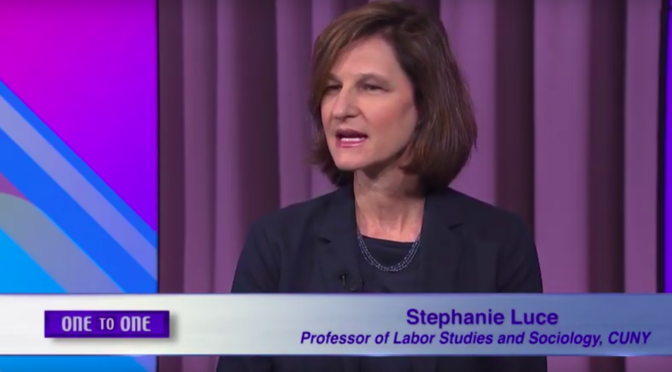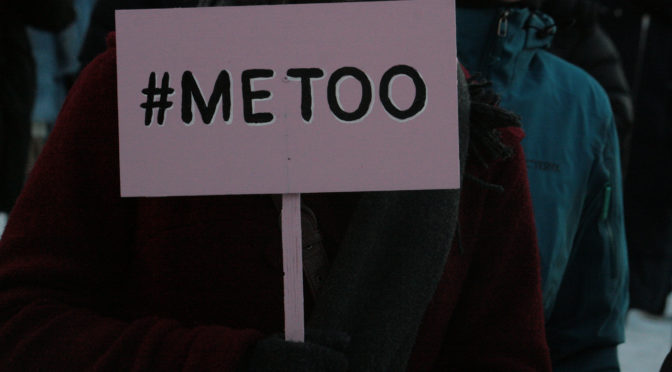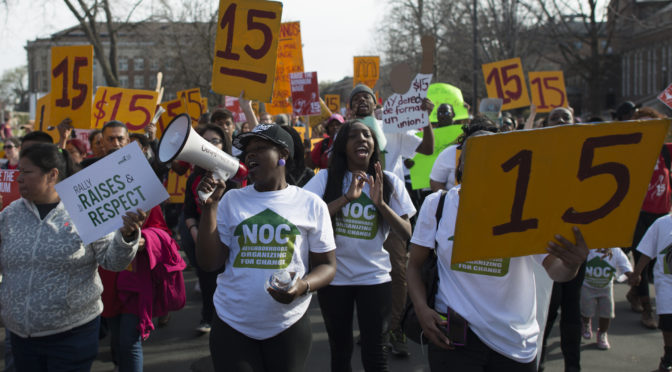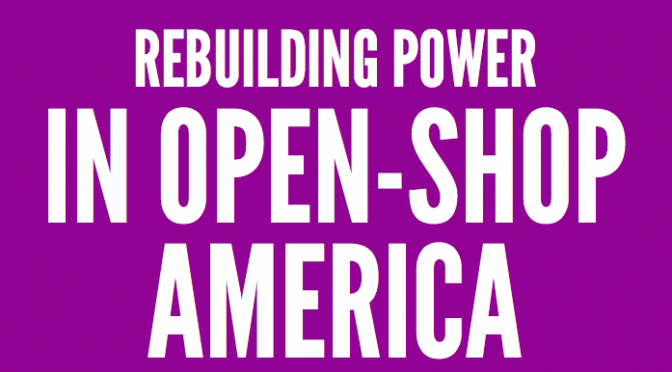The New Labor Forum has a bi-weekly newsletter on current topics in labor, curated by the some of the most insightful scholars and activists in the labor world today. Check out some highlights from the latest edition below.
The early successes of the #MeToo movement caught many commentators by surprise. However, despite its notable achievements – including dramatic increases in awareness regarding sexual harassment, as well as the conviction of a long list of high profile offenders – the institutional changes required to prevent sexual harassment and assault are still a long way off. A recent national online survey highlights this fact, finding that 81 percent of women have experienced sexual harassment in their lifetime. This figure is higher than previously cited data because it includes the plethora of verbal forms of sexual harassment, as well as physical harassment, cyber harassment and sexual assault. The survey also indicates that girls and young women experience alarmingly high rates of harassment, with the highest incidence occurring between the ages of 14 and 17.
Establishing and enshrining changes in the workplace, where sexual harassment so often occurs, should be a first order priority for organized labor. Yet, as Ana Avendaño writes in her article for New labor Forum , “with some notable exceptions, the labor movement has been a bystander, or even complicit, especially in male-dominated industries where harassment is most pervasive.” Avendaño examines labor’s troubled legacy, including some unions’ efforts to weaken the Equal Employment Opportunity Commission, and steer claims of racial and gender discrimination away from the courts. She also describes the effective work by a handful of unions to make their industries more equitable and safe for women workers, and suggests how this work provides a model for organized labor to prevent sexual harassment in the workplace and in its own union halls.
The #MeToo movement has also forced unions and other social justice organizations to reckon with their own internal cultures that enable, and sometimes breed, racial and gender discrimination. A recent case in point is the Southern Poverty Law Center, long admired by progressives for its work in tracking and prosecuting hate groups. We include here a New York Times article that discusses the accusations of racial discrimination and sexual harassment in that organization that have now forced the departure of its top leadership. What next? Reversing decades of weakening labor law and shoring up the fragile prosecutorial footing provided by Title VII of the Civil Rights Act seem like two necessary, albeit uphill, battles that must be waged to stop ubiquitous workplace sexual harassment.
Table of Contents
- #MeToo Inside the Labor Movement/Ana Avendaño, New Labor Forum
- A New Survey Finds 81 Percent of Women Have Experienced Sexual Harassment/ Rhitu Chatterjee, NPR
- Roiled by Staff Uproar, Civil Rights Group Looks at Intolerance Within/ Audra D.S. Burch, Alan Blinder and John Eligon, New York Times
- The Rape of Recy Taylor Film Screening/ Co-sponsored by the Women’s Organizing Network
Photo by GGAADD via flickr (cc-by-sa)








